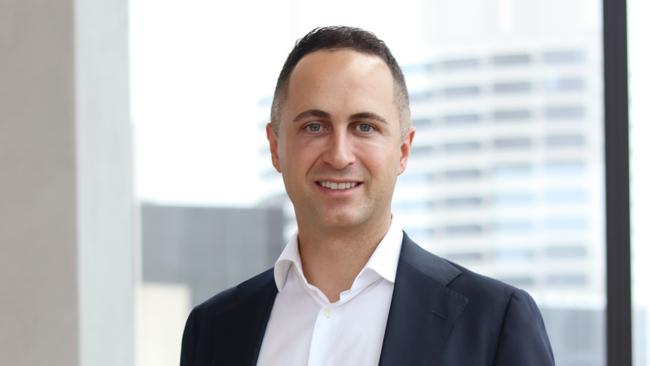
Already this month the sharemarket sell-off has led to a rise in fixed income ETF flows, with a third of all new ETF money now going to these strategies, according to exchange-traded provider Betashares. That’s up from 17 per cent in February.
The lure of defensives is well timed for the many managers rolling out reams of new income-focused strategies.
Indeed, fund managers were lining up to launch new offerings that tap into fixed income, private credit and hybrids even before the recent downturn, in part due the banking regulator’s move late last year to ban bank hybrids, long a favourite among retirees. That’s a $43bn market – half of which is made up of mum and dad investors – asset managers are very keen to get a piece of.
Macquarie is among those taking advantage of the renewed appetite for fixed income. The global asset manager has just launched two new ETFs: the Macquarie Global Yield Maximiser
Active ETF and the Macquarie Subordinated Debt Active ETF.
Brett Lewthwaite, CIO and global head of fixed income for Macquarie Asset Management, says active fixed-income ETFs have a long track record of outperforming their passive counterparts. “With fixed income, you’re lending money to someone and buying their bond,” he says.
“So you give them money, they give you interest payments, and at the end of that, they give you back your money.
“To do that passively, you’re essentially just lending money to whoever’s in the index. And obviously parts of the index aren’t that good. (Companies) might default, and the index doesn’t necessarily screen those out. If you’re active, you don’t have exposure to that part of the market. Then you naturally outperform right away.”
Stockbroking veteran Geoff Wilson, meanwhile, has built his own hybrid-style WAM Income Maximiser listed fund with the promise of a steady income stream for investors caught short by the looming end to Australia’s $40bn hybrid securities market.
Private credit, with liquidity
Along with fixed income, private credit is increasingly being touted as a defensive. MA Financial this month launched the MA Credit Income Trust, its first listed private credit fund.
The listed fund offers investors access to MA Financial’s flagship private credit strategies but with added liquidity.
“The idea of this MA1 vehicle is that it’s an access point on the ASX where you get daily liquidity and trading but you also get to participate in our flagship private credit strategy,” MA Financial head of credit investments Frank Danieli tells The Australian.
“Investors on the ASX have these bank hybrids probably for the defensive part of their portfolio, for the yield and income. And we think people participating in LITs can get something similar, where you put your capital out there, earn yields, hopefully with a good degree of capital stability,” he says.

Private credit, traditionally placed in the ‘‘alternatives’’ basket, has exploded in popularity in recent years, in part due to low volatility and high returns.
But the investor push has rattled regulators around the globe. Australia’s own corporate watchdog is already bracing for an uptick in “failures” in private credit investments.
And yet, even as warning bells ring, somewhere along the way there’s been a shift in marketing whereby private credit is now, in many circles, lumped in with slow-and-steady fixed income. Typical returns sit at around cash plus 4-5 per cent. But private credit (debt) is not without its risks.
Most private debt is sub-investment grade, says Zenith Investment Partners’ head of alternatives and fixed income, Rodney Sebire.
“The key with any private debt transaction is there’s usually an equity cushion protecting investors, and generally between 30 and 40 per cent for a traditional corporate loan,” he says.
There’s also no mark-to-market volatility. “Public debt had a really tough 2022 but private credit was really strong through that period, and that’s fuelled a lot of interest in the sector,” Sebire says.
That doesn’t mean the underlying assets wouldn’t have lost their value in the downturn, just that they were never marked down, because that’s how it works. The asset is only marked down if there’s a default and someone looks under the hood.
Investor risks are higher in certain parts of the market that advertise to retail investors, especially those with SMSFs, including mid-tier lenders and property-related lending, Sebire warns.
He’s speaking about cases like the Shield Master Fund case, which was pumped up with super money in 2022 and 2023 with the promise of outsized returns from luxury property developments. The fund is now in the process of being liquidated, with developer Paul Chiodo, who was a director of Shield’s responsible entity, Keystone Asset Management, under investigation for allegedly mishandling investor money. He denies the allegations.
These funds are rated by some houses but not Zenith.
“We don’t rate any of those smaller-tier lenders. They’ve all got their own internal trustees as well. So there’s no external responsible entity, no external compliance committee and very poor disclosure in the offer documents,” Sebire cautions.
The bigger end of the sub-investment grade market is more stable, he adds, with “two to four names out of 100” typically what can be expected for defaults.




Donald Trump’s trade war and the threat of a US recession have wiped trillions of dollars from sharemarkets around the globe, putting a sheen on defensive assets for investors fleeing to safety.